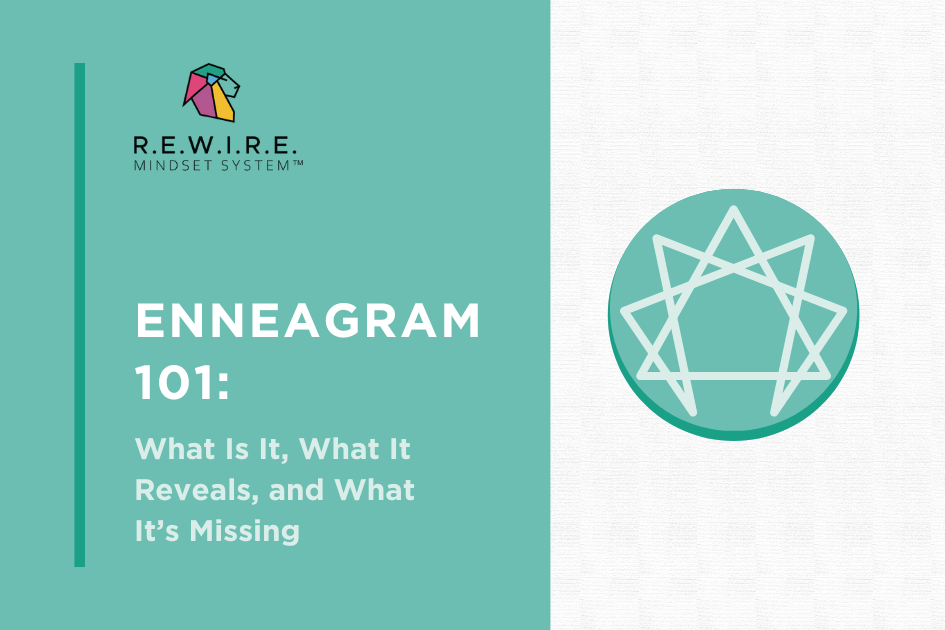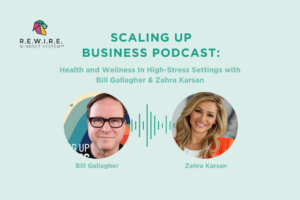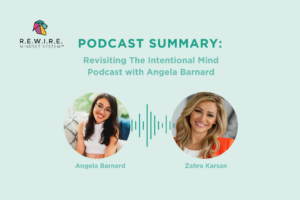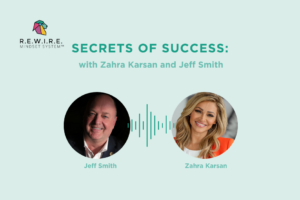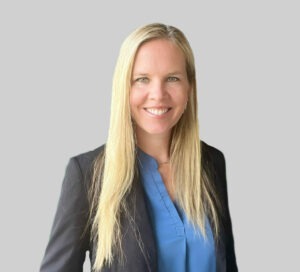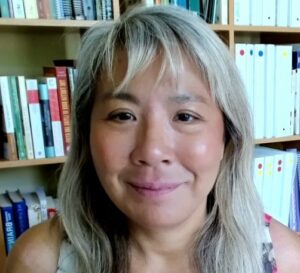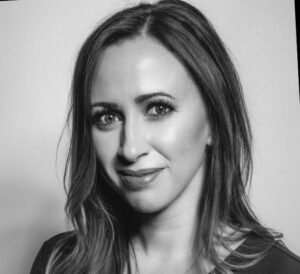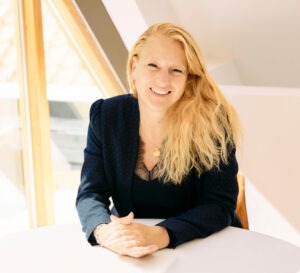As a student of human behavior and the human journey, I have long been fascinated with personality tests and assessments of all types.
To date, I’ve nearly tried them all: the free and full Enneagram test, the Myers-Briggs (MBTI), the Strengthsfinder, and the DISC assessment, to name a few.
Each of these personality assessments are interesting tools that help you gain insight into your personality and predispositions, and highlight areas for development that we may otherwise be blind to.
But even after investing my time and energy into a plethora of personality tests, I was left with one burning, unanswered question:
Why?
Why are behaviors and natural tendencies present in any given person?
Why are you the way you are?
And in the absence of knowing, my next question felt even more impossible: how can we solve for what we’re missing if we don’t even know what ‘that’ is?
In order to share with you more of what I learned about using personality tests to guide personal growth, I want to start by shining a light on popular personality tests and personality quizzes like the Enneagram and the Myers-Briggs indicator.
What Is the Enneagram?
The Enneagram has gained popularity in recent years as a tool for personal growth and self-awareness. Rooted in ancient wisdom and modern psychology, the Enneagram offers a unique perspective on human behavior, motivations, and core fears.
The Enneagram consists of nine distinct personality types, each represented by a number from one to nine. Each type, or number, embodies a particular set of traits, motivations, and coping mechanisms. The Enneagram acknowledges that individuals are driven by specific fears and desires, influencing their thoughts, feelings, and behaviors.
The Enneagram also recognizes that individuals have access to all nine types within them; instead, one type serves as their dominant ‘pattern’. Understanding one’s dominant type can be a transformative experience, providing insights into personal strengths, areas for growth, and paths toward self-improvement.
Comparing the Enneagram to Myers-Briggs
While both the Enneagram and the Myers-Briggs Type Indicator (MBTI) aim to help individuals understand themselves better, they approach personality from different angles. The MBTI focuses on cognitive preferences and categorizes individuals into 16 distinct personality types based on four dichotomies: extraversion/introversion, sensing/intuition, thinking/feeling, and judging/perceiving.
In contrast, the Enneagram delves deeper into the motivations and fears that drive behavior. It recognizes that individuals of the same Enneagram type can display different behaviors due to external factors or the influence of other types.
Simply put, the Enneagram’s dynamic nature allows for growth and transformation over time, while the MBTI tends to provide a more fixed description of personality.
Shortcomings of the Enneagram
While the Enneagram is a valuable tool for self-discovery, it’s important to acknowledge its limitations. One common criticism is the lack of scientific validation. Unlike the MBTI, which is based on the work of Carl Jung and has undergone extensive research, the Enneagram lacks a similar level of empirical evidence.
Consequently, some skeptics view it as more of a philosophical or spiritual framework than a scientifically backed personality test model.
Another shortcoming is the potential for oversimplification. The Enneagram categorizes complex individuals into nine types, which may not fully capture the intricacies of human personality.
Here’s the truth: people are multifaceted, and their behaviors can be influenced by a variety of factors, including cultural background, life experiences, and personal growth.
Additionally, the Enneagram’s reliance on self-reporting can introduce bias and inaccuracies, given that all test takers score and rank themselves. Because of this model, test takers might struggle to accurately assess their own motivations and fears, leading to mistyped results. This element of the test highlights the importance of self-reflection and seeking feedback from others to gain a more holistic understanding of oneself.
Creating the Life Block Quiz
As a natural coach and lover of people, I knew I wanted to take the helpful information I had gleaned from the Enneagram and Myers-Briggs and package it in a more holistic, accessible way.
The idea of being able to highlight aspects of one’s personality and give a person the gift of learning how to navigate the roadmap to reaching their full potential is how the Life Block Quiz was born.
After working with thousands of clients over the years, I came to understand the why of being human and the why of certain conditions that create these behaviors. This became the basis of the Life Block Quiz.
As I began my research, it was uncanny what happened next.
I’d see six or more clients in a row that each had the same personality traits, behaviors and triggers. These real-life interactions laid the foundation for what would become the Ten Animal Archetypes: a personality description that includes how you are naturally wired, what your coping strategies are, what become your strengths, and how you behave when stressed or triggered.
Finally, unlike the Enneagram or Myers-Briggs, the Life Block Quiz takes into account subconscious patterns that may be blocking you from achieving the love and connection, the inner peace, the happiness and the success you deserve.
Where to Take the Life Block Quiz
As the world returns to a new normal after a global pandemic, we’ve all become acutely aware of the need to look after our mental and emotional health.
This journey begins with self awareness.
This is the common denominator that personality assessments like the Enneagram, the Life Block Quiz, the Love Languages Quiz, and Myers Briggs have in common: they each provide you with critical tools to unlock the mystery of who you are so that you can begin the beautiful journey towards self mastery.
The Life Block Quiz, however, takes it a step further by asking the why behind your what.
It doesn’t matter if you’re just a graduate student or a mid level careerist, entrepreneur or stay at home mom; there is incredible value in taking this personality test.
As you become aware of your own behaviors and Life Blocks, you’ll also see the patterns in those around you and be able to form more loving and deeper connections with those closest to you.

